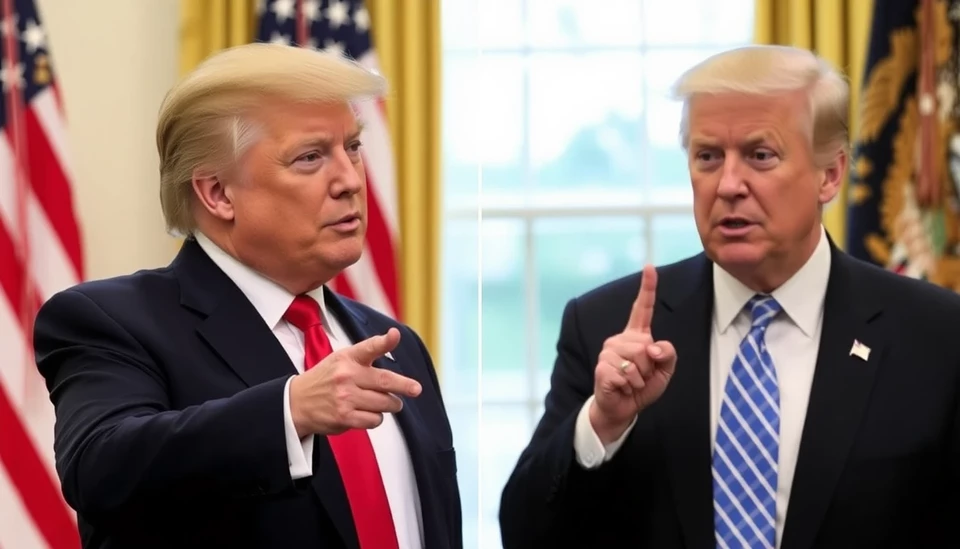
In a bold and controversial strategy, former President Donald Trump is setting the stage to significantly alter the trajectory of climate regulations in the United States. His latest focus centers on the contentious "endangerment finding" established by the Obama administration, which plays a critical role in shaping the government's response to climate change. This move has the potential to redefine how the country approaches environmental policies, emphasizing a shift towards deregulation and less federal intervention.
The endangerment finding, first issued by the Environmental Protection Agency (EPA) in 2009, determines that greenhouse gases pose a risk to public health and welfare. This ruling has been pivotal in allowing the federal government to impose stricter limit regulations on emissions from various industries, which Trump views as an overreach of governmental authority.
During his administration, Trump made numerous attempts to roll back various environmental protections, but the potential rescission of the endangerment finding could mark one of his most significant moves yet. By dismantling this foundational approval, Trump aims to render climate change less of a federal priority, effectively opening the door for a more business-friendly climate that prioritizes economic growth over environmental concerns.
Trump's plan is not merely about withdrawing current climate rules; it also reflects a broader vision for U.S. energy policy. Advocates of this strategy argue that reducing regulatory burdens will spur economic growth, increase energy independence, and revitalize the fossil fuel industry, which they believe has been unfairly targeted in favor of renewable energy sources. Critics, however, warn that this approach could exacerbate climate change, threaten public health, and undermine years of legal and scientific groundwork in environmental protection.
As Trump gears up for the 2024 presidential election, this issue is becoming a centerpiece of his campaign. He is expected to rally support from a base that prioritizes jobs and economic growth over climate initiatives, framing the rollback of the endangerment finding as an essential step in his vision for an America focused on industry and prosperity.
The timing of this announcement is particularly strategic, as debates around climate change and energy policy continue to intensify among voters. Trump likely aims to leverage existing frustrations with rising energy prices and inflation, seeking to position himself as a champion of the working-class American who wishes to see natural resource utilization prioritized.
Nonetheless, environmental advocates remain vigilant, bracing for pushback and mobilizing their resources to counteract Trump's bold climate maneuver. They aim to highlight the importance of scientific consensus on climate change and its impacts, emphasizing that the stakes are incredibly high should the endangerment finding be rescinded.
As America stands at a crossroads regarding its energy policy and environmental responsibilities, Trump's impending decisions promise to ignite passionate debates and could have lasting implications for the country's climate future. The battle over the endangerment finding is poised to become a defining issue not just of his campaign, but of America's approach to environmental regulations for years to come.
#Trump #ClimateChange #EndangermentFinding #EnvironmentalPolicies #RegulatoryRollbacks #2024Elections
Author: Sophie Bennett




